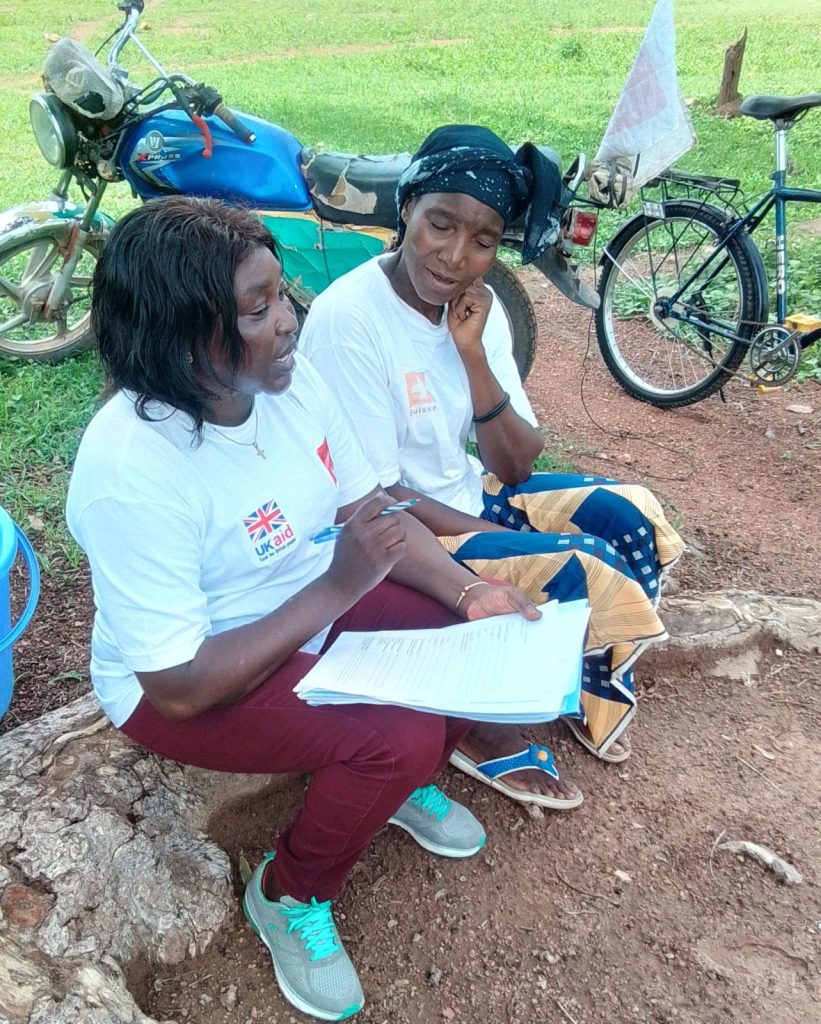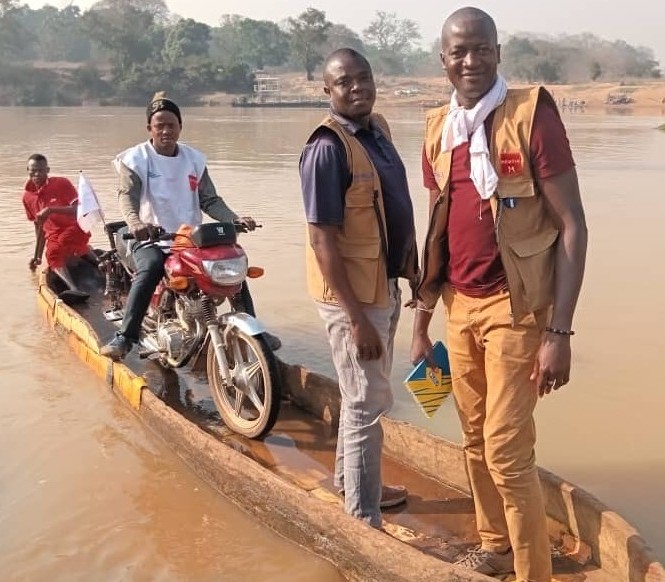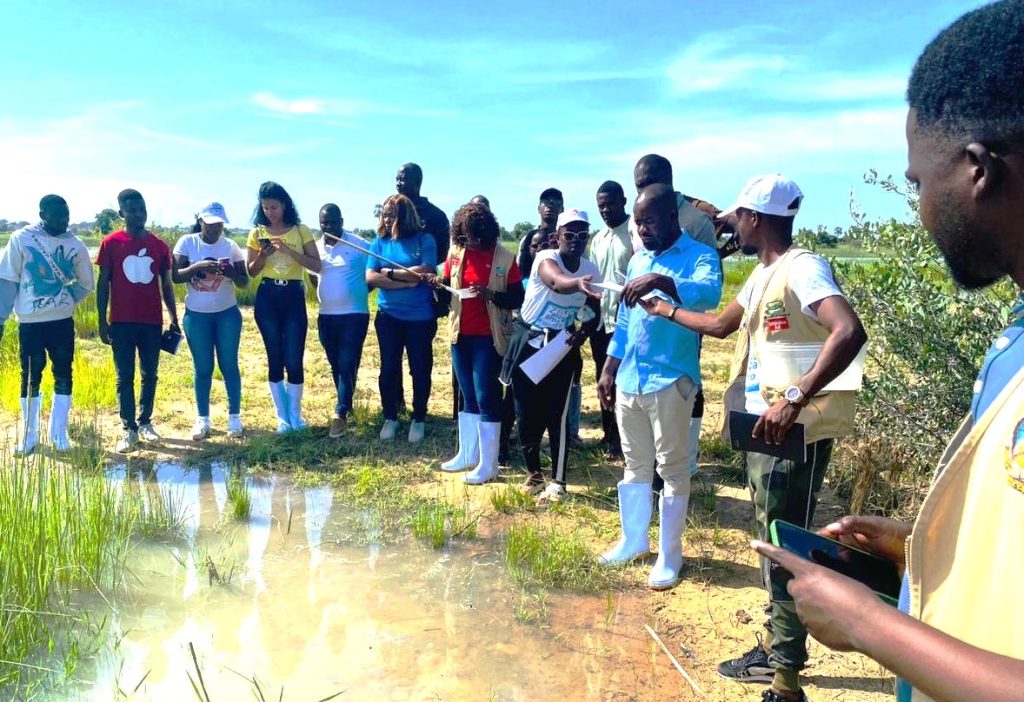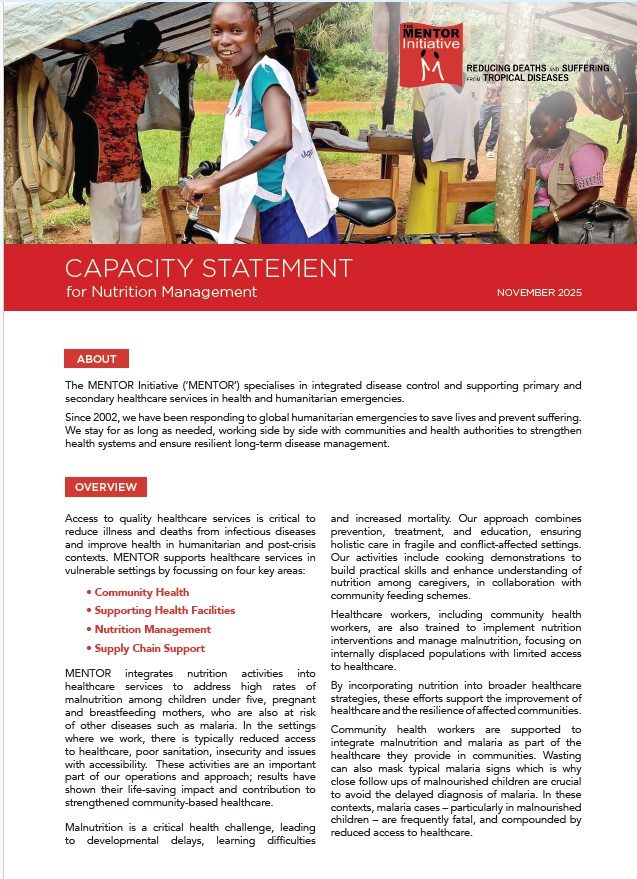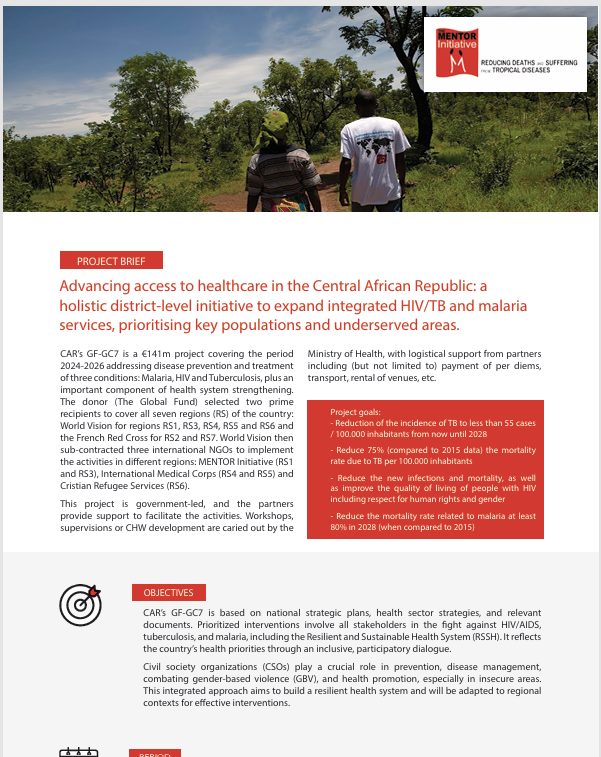Central African Republic
Central African Republic (CAR) is facing one of the world’s most neglected humanitarian crises. According to OCHA, 3.4 million people need humanitarian assistance and protection, of whom 2.4 million need acute and immediate humanitarian assistance.
Clashes between government forces, government allies and armed groups are causing the humanitarian situation to continue to deteriorate and many people to be displaced, often multiple times. One in five Central Africans has been forcibly displaced since the latest round of violence began in 2013.
The crisis has sharply reduced access to essential services. As of October 2021, only 22% of CAR’s health facilities are functioning, and one in five nutritional feeding units are closed. Over a third of Central Africans must walk more than an hour to reach a health facility. Communities are at risk of many diseases, particularly malaria, respiratory tract infections and diarrhoeal diseases which places a huge burden on an already strained health service.
There is also a scarcity of skilled health workers, a lack of essential treatments and management capacities, and limited-service delivery, including access to secondary health, sexual and reproductive health services. Young children and pregnant women are especially vulnerable to disease, illness and death in this setting, and mortality rates are unacceptably high.
MENTOR started its CAR programme in 2008 and supports activities to improve access to healthcare and prevent diseases in Bocaranga, Paoua, Alindao and Batangafo.
- Supporting selected health facilities with treatments, training, data collection and supervision.
- Supporting Community Health Workers through selection, training and monthly distribution of treatments, data collection and supervision.
- Supporting community focal points who do information, education and communication (IEC) sessions in communities regarding hygiene promotion and health prevention. Screening of malnourished children (under 5 years).
- Continuous training and support to the selected health structures to use data collection tools and respective analysis.
- Improvements to water and sanitation systems in supported health facilities.
- Treating severely malnourished patients in communities and in health facilities.
- Logistical support to distribute medical supplies in hard-to-reach areas.
- Mass Drug Administration in targeted areas.
- Distribution of Long-lasting insecticide treated nets.
- Pilot project for diagnosing Human African Trypanosomiasis in rural communities.
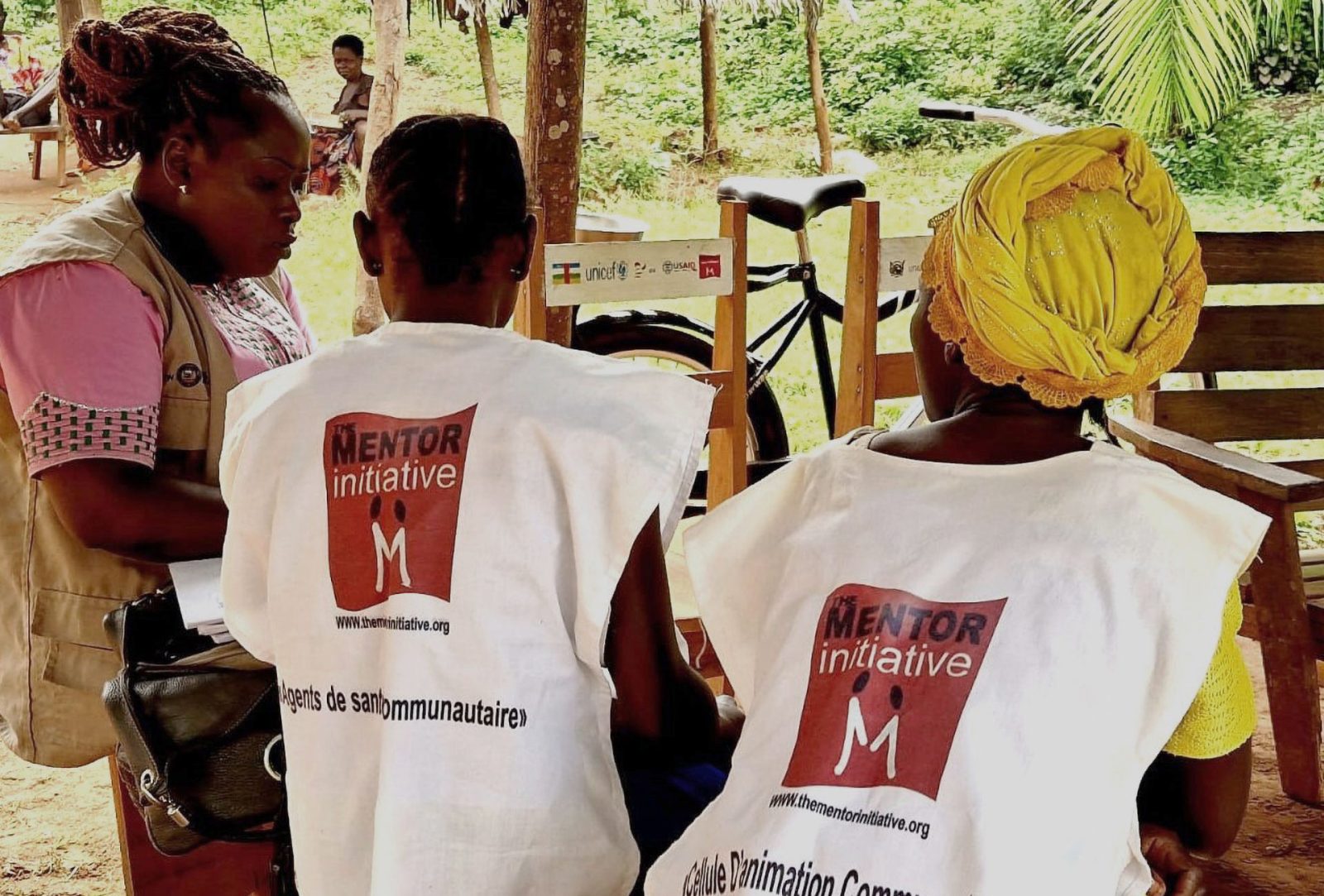
- 210,340 consultations took place in supported health facilities. Over 145,000 malaria cases were diagnosed and treated.
- Community Health Workers carried out 136,274 consultations and diagnosed and treated 81,513 cases of malaria.
- 10,284 cases of malnutrition were treated.
- Hygiene promotion through information and education campaigns reached 17,076 people.
- 11,900 people were diagnosed with Human African Trypanosomiasis during a pilot project using rapid diagnostic tests.

